This HBCU Produced 40% Of HBCU Alumni Working In VC
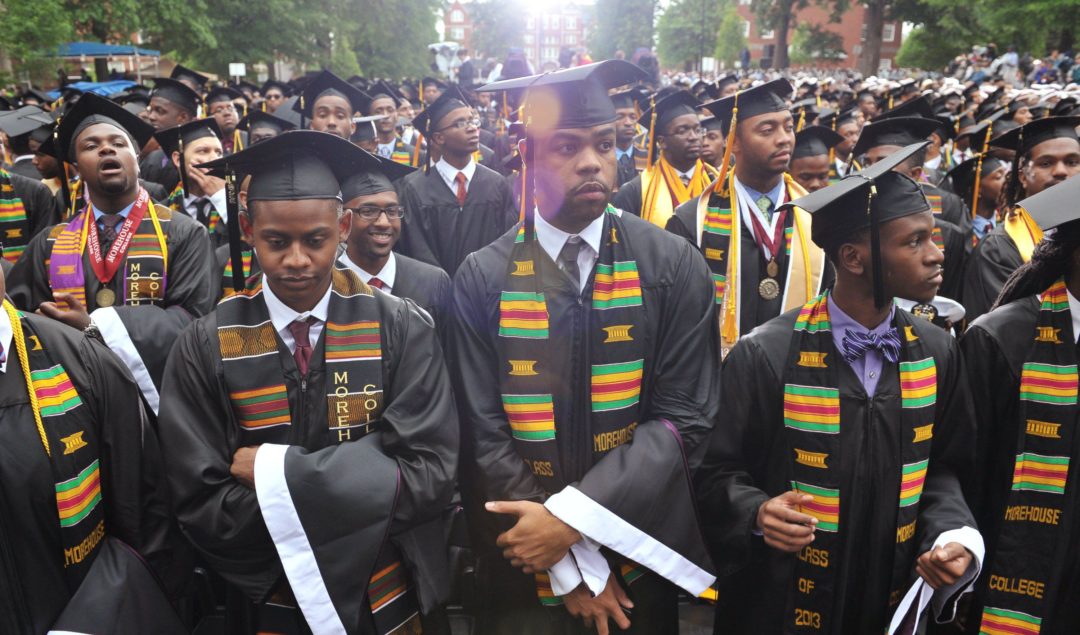
A key component of our thesis at HBCUvc is how university-affiliated networks influence venture capital ecosystems. According to Richard Kerby’s “Where Did You Go to School?” — forty percent of venture capitalists attended Stanford or Harvard. Stanford and Harvard are also ranked as the top two universities for producing the most funded startup CEOs. I wanted to know which HBCUs are already producing talent in the venture capital ecosystem.
I compiled a list of 59 HBCU grads who are working in venture capital or have worked in the industry in the past five years. The list was compiled identifying HBCU graduates in Richard Kerby’s Venture Capital Diversity Data, Sydney Thomas’s List of Black Women In VC, Aaron McClendon’s List of Black Men In VC and by searching for HBCU alumni on CrunchBase.
Below is a breakdown of represented HBCUs, gender demographics, and grad school affiliations.
University Affiliations For HBCU Alumni Working In VC
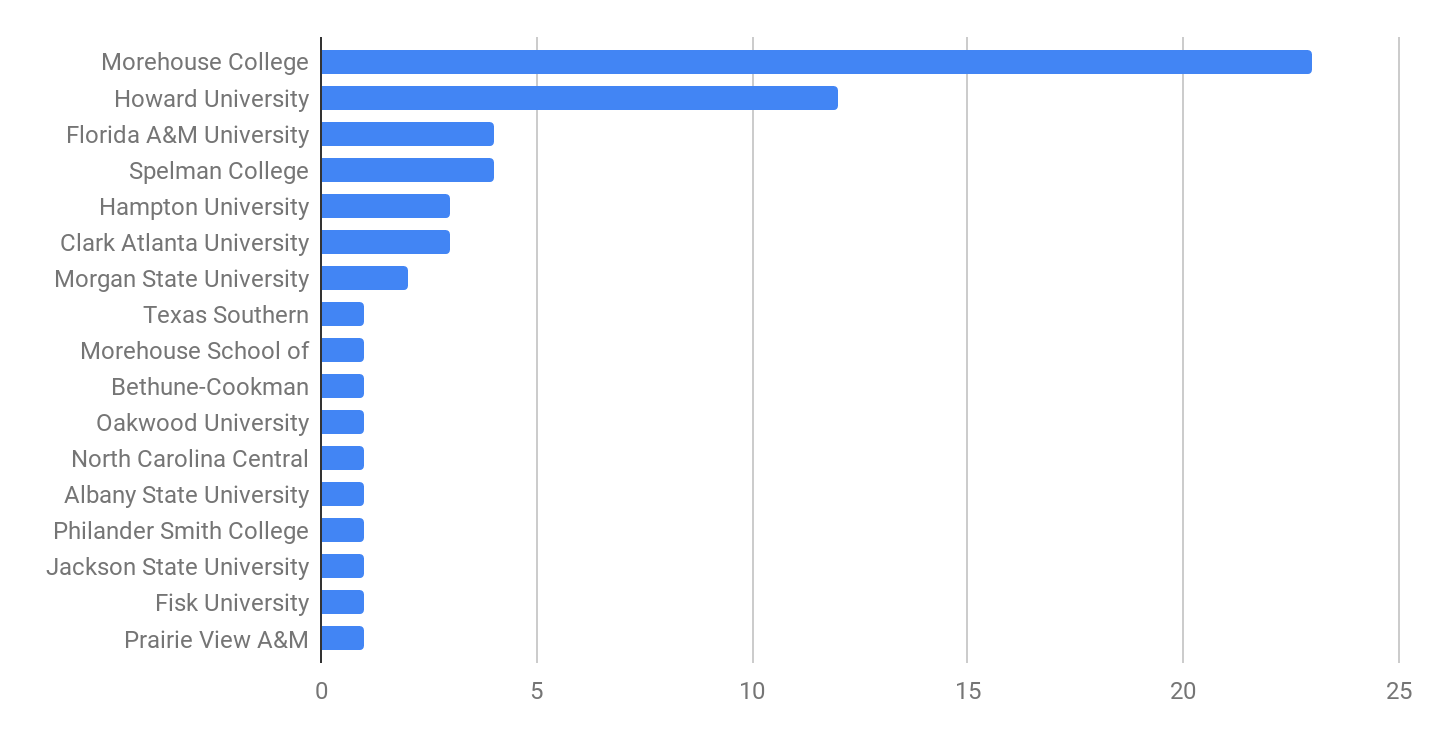
Based on this dataset, Morehouse College is affiliated with 39% of HBCU graduates working in venture capital. Because Morehouse College is an all-male college, I wanted to know which HBCUs were producing women working in venture capital.
University Affiliations For Women HBCU Graduates Working In VC
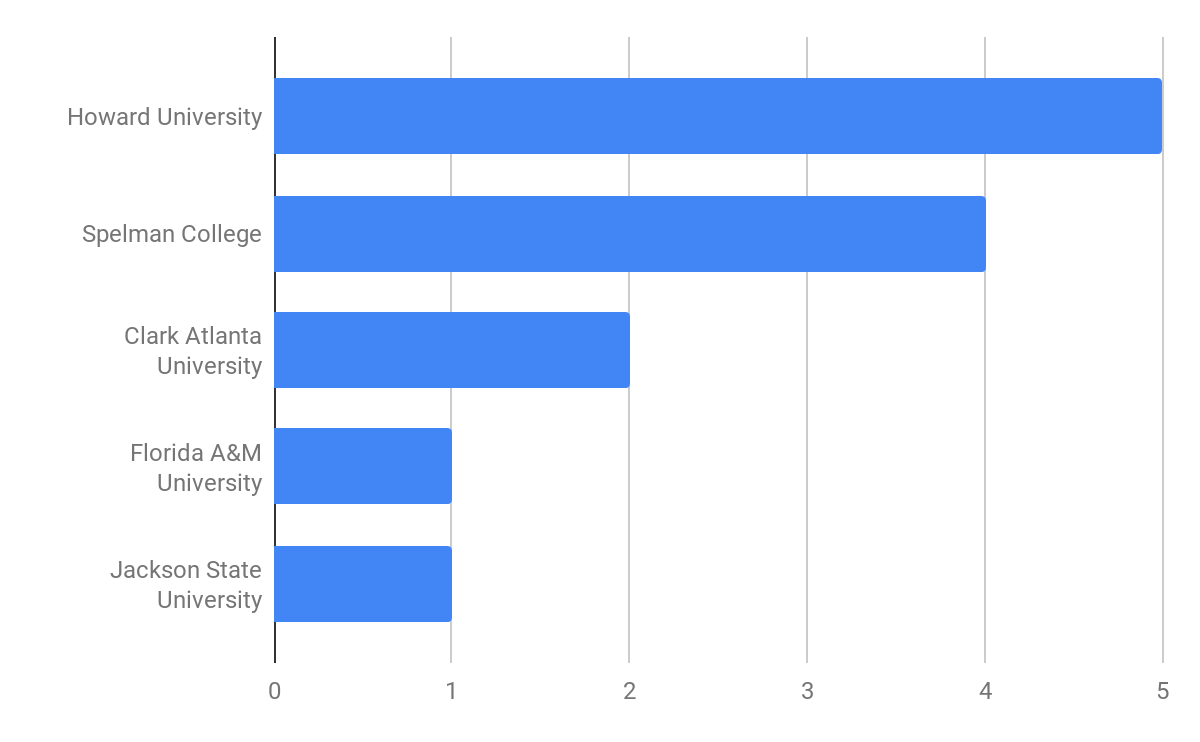
Howard University graduates 38% of women HBCU graduates working in venture capital.
Gender Breakdown of HBCU Alumni Working In VC
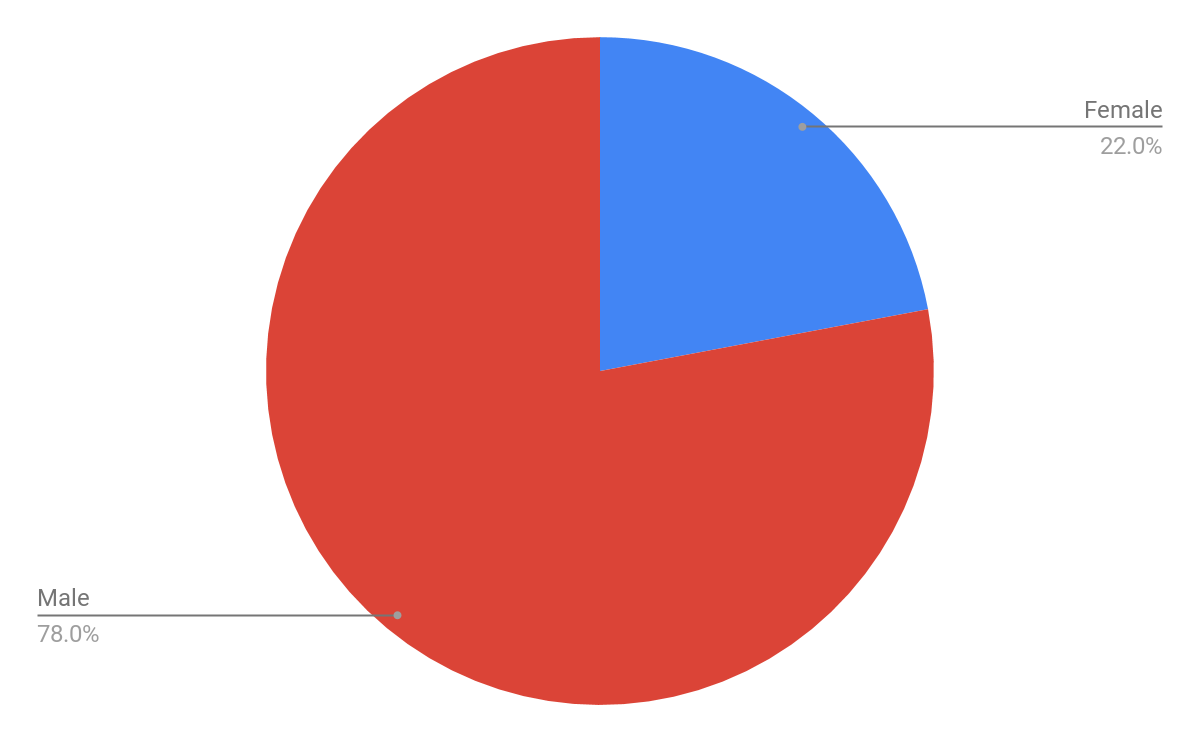
Of the total 59 HBCU grads, only 13 identify as female based on public sources. Twenty-two percent of HBCU graduates working in venture capital are women.
In looking at the dataset, I was also curious about how many of the VCs had gone to graduate school and expanded their university affiliations.
HBCU Alumni Working In VC With MBAs
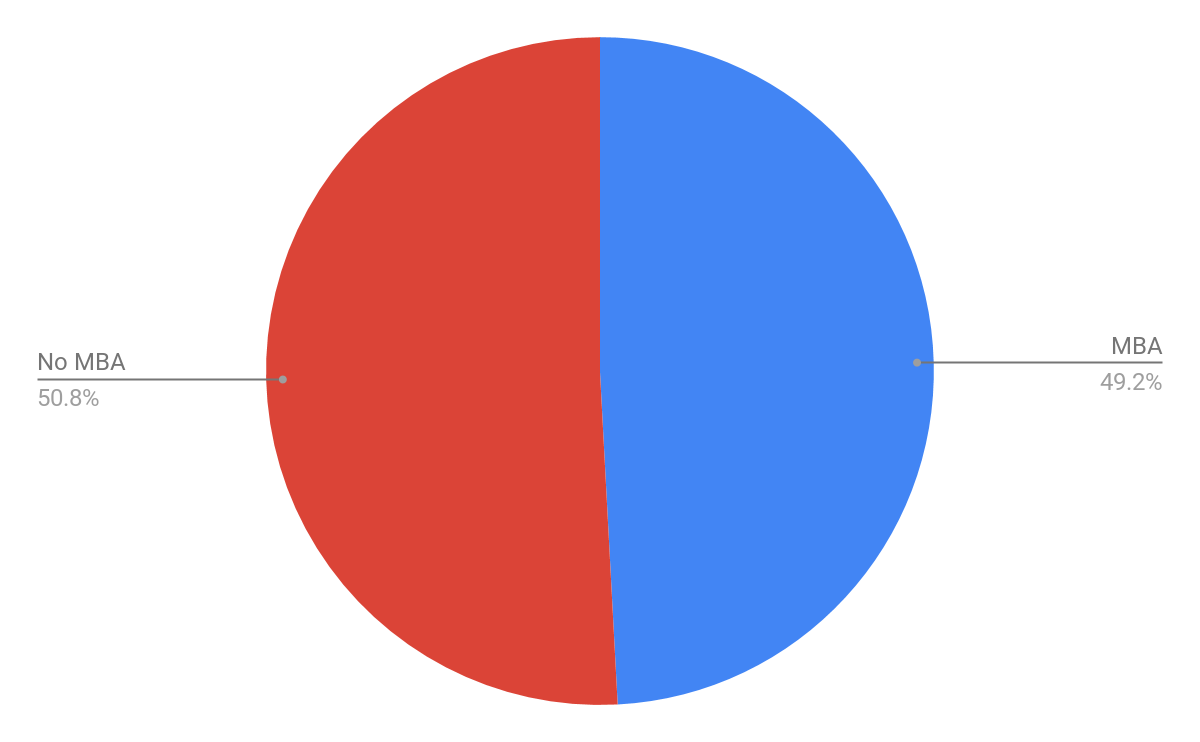
Where HBCU Alumni Working In VC Went For Grad School
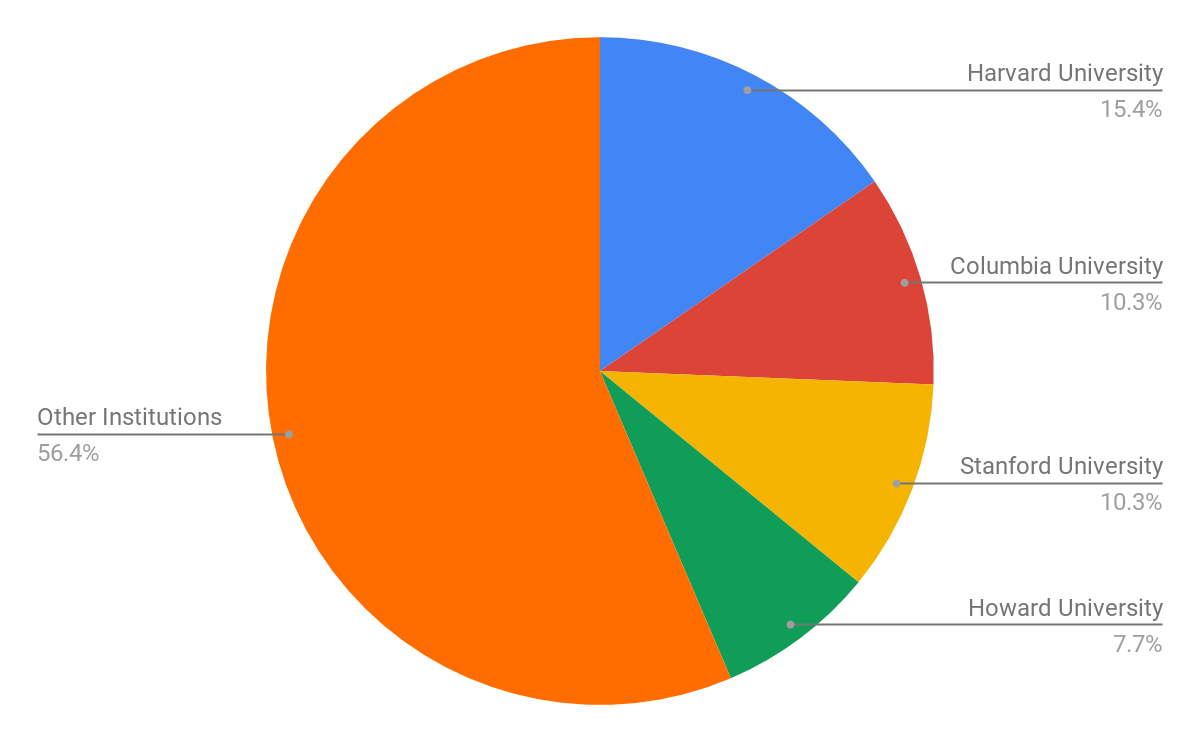
This is my first pass at research on HBCU networks in venture capital. By studying and reporting on these HBCU networks, I hope to 1) identify a pattern to influence the work of HBCUvc and 2) develop a greater framework of leveraging minority affinity networks to foster inclusive innovation ecosystems. At a minimum, this post will create a moment of #HBCUPride for the universities represented but it should also serve as a reminder for HBCUs, ecosystem builders, and venture capital leaders that there’s still a lot of work to be done in creating racial equity in the venture capital ecosystem.
Originally posted here.



